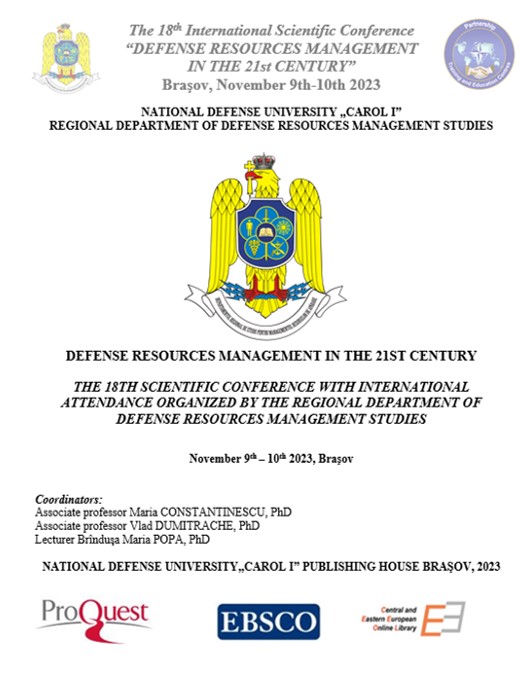WHAT DOES THE MIDDLE EAST CRISIS REVEALS ABOUT THE NEW GLOBAL ORDER?
WHAT DOES THE MIDDLE EAST CRISIS REVEALS ABOUT THE NEW GLOBAL ORDER?
Author(s): Ioana-Nelia Constantin BerceanSubject(s): Government/Political systems, International relations/trade, Security and defense, Political behavior, Geopolitics, Peace and Conflict Studies
Published by: Regional Department of Defense Resources Management Studies
Keywords: Middle East; New World Order; Great Powers; foreign policy; proxy wars; diplomacy;
Summary/Abstract: United States (and to a lesser extent the European Union) and China will undoubtedly have a role to play in the war between Israel and Hamas. Also, the other regional powers, such as Russia, Türkiye, Iran or Saudi Arabia, will be part either of a diplomatic resolution, or of a conflict of attrition. Whether any of these powers will be able to resolve or contain that conflict is far less certain. The notion that great-power (or regional powers) competition defines geopolitics has comeback into vogue after it fell into obscurity at the close of the Cold War. Unspoken Cold-War-era assumptions, however, still shadow many contemporary claims about the nature of this competition. Great powers, analysts assume, will marshal immense resources to shape the international order. What they do will shape global affairs. Using their financial and military might for proxy wars, they will remain intensely focused on each other. Wherever one acts, the others will respond in kind. Drawing from structural realism and constructivism, as theoretical bechmarks, this paper will introduce the reader in the regional and international consequences of Hamas’s terrorist attack on Israel and will put into discussion the way this unfortunate event might affect the dynamics of the new Global Order.
Journal: Defense Resources Management in the 21st Century
- Issue Year: 18/2023
- Issue No: 18
- Page Range: 42-50
- Page Count: 9
- Language: English

